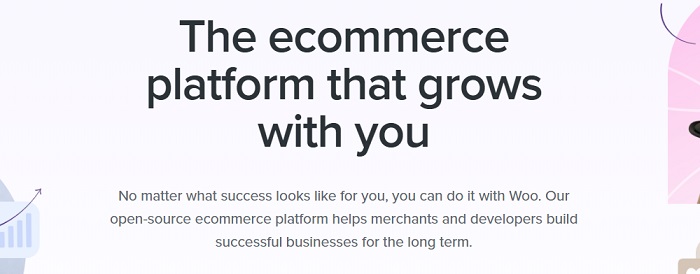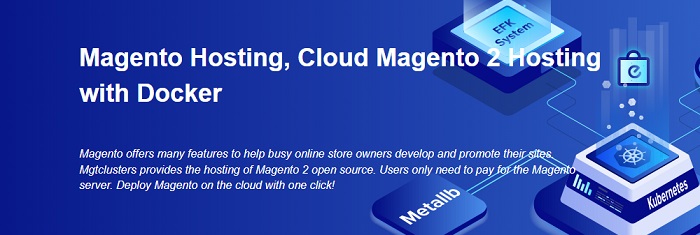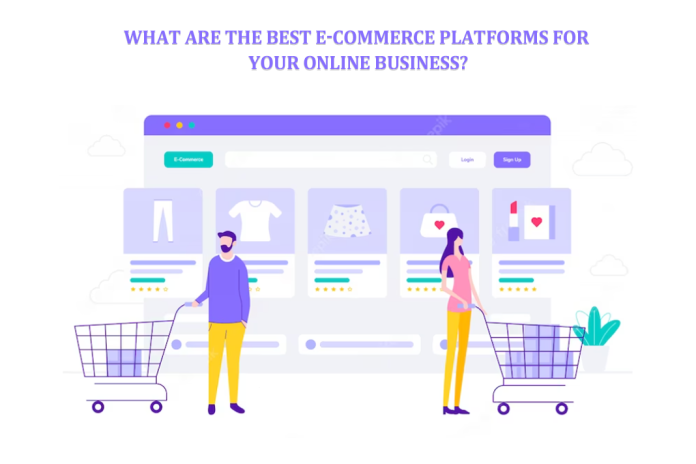The top e-commerce platforms offer an affordable and user-friendly approach to building a successful online store. However, with numerous options, selecting the right system can take time and effort.
To assist, we conducted a thorough analysis and identified the best e-commerce platforms for small businesses in 2023. These solutions provide essential features for a quick site launch, increased traffic, and improved sales performance.
Best eCommerce Platform
The best e-commerce platform depends on finding the one that aligns with your requirements. With numerous options available, each offering unique features tailored to various business types, it can be overwhelming. To simplify your decision-making process, we have compiled a list of top-rated e-commerce platforms below, allowing you to make a swift and informed choice.
Top 5 E-Commerce Platforms in 2023
Below are the top 5 best e-commerce platforms for your online business that were highly regarded:
-
WooCommerce

WooCommerce is a powerful open-source e-commerce plugin built specifically for WordPress, the popular content management system (CMS).
As an extension for WordPress, WooCommerce seamlessly integrates with your existing WordPress website, transforming it into a fully functional e-commerce store. It offers numerous features, such as WooCommerce private store and customization options, making it suitable for businesses of all sizes.
WooCommerce allows you to manage products, handle inventory, set up payment gateways, and handle shipping options effortlessly. With numerous free and premium themes and extensions, you can tailor your store’s design and functionality to suit your brand and business needs.
Features
- Seamless integration with WordPress websites.
- Product management, inventory tracking, payment gateways, and more.
- Wide range of themes and extensions for tailored stores.
- Open-source nature allows code modification for flexibility.
- Intuitive interface appropriate for beginners and experts.
- Adaptable to businesses of all sizes and stages of growth.
- Vibrant community and documentation for assistance.
- Handles hosting, security, and technical aspects efficiently.
- Shopify

Shopify is a world-popular and user-friendly e-commerce platform allowing entrepreneurs and businesses to easily create and manage online stores.
The platform provides various customizable templates and themes, enabling users to design visually appealing and professional-looking online stores without extensive coding knowledge. Its intuitive interface makes it accessible to both beginners and expert users.
Also read: 11 Essential Strategies for Ecommerce Success in the Digital Age
Shopify offers essential features, including product management, inventory tracking, order processing, and customer management. Additionally, it supports multiple payment gateways, allowing businesses to securely accept payments from customers worldwide.
Features
- All-in-one platform for creating and managing online stores.
- User-friendly interface, suitable for beginners.
- Extensive selection of templates and apps for personalized stores.
- Product management, inventory tracking, order processing, and more.
- Supports various payment options for seamless transactions.
- Ensures optimal shopping experience on mobile devices.
- Takes care of technical aspects for reliable performance.
- Suits small and mid-sized online businesses.
- BigCommerce

BigCommerce is a leading e-commerce platform designed to empower online businesses of all sizes to create and manage successful online stores.
As a hosted platform, BigCommerce takes care of essential technical aspects such as hosting, security, and maintenance, allowing users to focus on growing their businesses.
BigCommerce offers a vast selection of professionally designed themes and templates, which can be customized to match a brand’s identity and create visually stunning online stores.
Features
- All-in-one platform with extensive features for online stores.
- Easy to setup and manage.
- Offers themes and extensions for personalized designs and functionality.
- Suits startups to large enterprises with robust performance.
- Ensures a wholesome shopping experience.
- Handles hosting, security, and technical aspects efficiently.
- Supports various payment gateways and third-party apps.
- Provides outstanding customer support and has a vibrant community.
- Magento

Magento is a powerful and highly customizable open-source e-commerce platform. As an open-source platform, Magento offers developers and users extensive access to the source code, allowing for deep customization and the ability to tailor the online store to specific business needs. It provides a rich set of features for product management, inventory control, order processing, and customer management, making it suitable for businesses of all sizes.
Magento’s modular architecture enables the integration of various third-party extensions and add-ons from the Magento Marketplace, expanding its functionality and supporting additional features like payment gateways, shipping methods, and marketing tools.
Features
- Offers a wide range of functionalities for product management, order processing, and more.
- Highly flexible with access to source code for extensive customization.
- Suitable for small to large businesses and high-volume transactions.
- Options for varying business needs.
- Supports third-party extensions for added features.
- Provides customizable templates for unique store designs.
- Allows developers to build custom solutions.
- Trusted by many businesses for e-commerce success.
- Wix eCommerce

Wix is a user-friendly and all-in-one website builder that includes comprehensive e-commerce capabilities. With Wix, users can choose from various professionally designed templates optimized for desktop and mobile devices and customize them to match their brand identity and vision. The platform’s drag-and-drop editor makes adding products, managing inventory, and creating appealing product pages simple.
Wix offers essential features such as secure payment gateways, shipping options, tax management, and coupon codes. Also, it provides various marketing tools like email campaigns, SEO optimization, and integration with social media platforms to promote online businesses effectively.
Features
- Offers a wide range of functionalities for product management, order processing, and more.
- Highly flexible with access to source code for extensive customization.
- Suitable for small to large businesses and high-volume transactions.
- Options for varying business needs.
- Supports third-party extensions for added features.
- Provides customizable templates for unique store designs.
- Allows developers to build custom solutions.
- Trusted by many businesses for e-commerce success.
Conclusion
When selecting the best e-commerce platform for your online startup, consider factors like ease of use, scalability, customization options, and customer support. Popular options like Shopify, WooCommerce, BigCommerce, and Wix eCommerce offer a range of features to suit businesses of all sizes and needs. Research and assess your specific requirements to make an informed decision.





